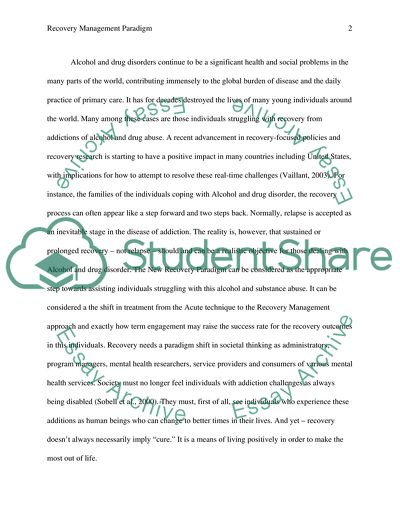Cite this document
(“Recovery Management Paradigm Research Paper Example | Topics and Well Written Essays - 1250 words”, n.d.)
Retrieved from https://studentshare.org/psychology/1681576-recovery-management-paradigm
Retrieved from https://studentshare.org/psychology/1681576-recovery-management-paradigm
(Recovery Management Paradigm Research Paper Example | Topics and Well Written Essays - 1250 Words)
https://studentshare.org/psychology/1681576-recovery-management-paradigm.
https://studentshare.org/psychology/1681576-recovery-management-paradigm.
“Recovery Management Paradigm Research Paper Example | Topics and Well Written Essays - 1250 Words”, n.d. https://studentshare.org/psychology/1681576-recovery-management-paradigm.


